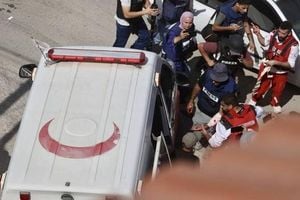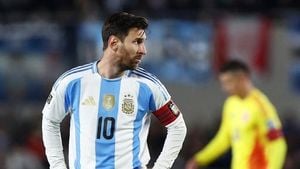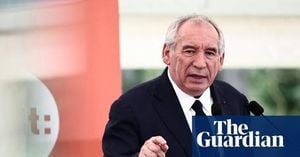On May 7, 2025, the Vatican will witness a significant event as the conclave to elect a new pope begins. A record number of 133 cardinal electors from around the globe will gather to determine the successor to Pope Francis, marking a historic moment for the Catholic Church.
The proceedings kick off at 10:00 AM with the "Pro eligendo Papa" mass at St. Peter's Basilica, presided over by 91-year-old Cardinal Giovanni Battista Re. This solemn mass is a traditional start to the conclave, invoking blessings for the election process.
Following the mass, a procession of the electors will commence at 4:30 PM, moving from the Pauline Chapel to the Sistine Chapel. This procession will be accompanied by the hymn "Veni Creator," calling for the guidance of the Holy Spirit. Upon reaching the chapel, the cardinal electors will take an oath to maintain the secrecy of the election, pledging to adhere to all regulations governing the conclave.
As the doors to the Sistine Chapel are closed, a command known as "extra omnes" will be issued by Archbishop Diego Ravelli, signaling that only the electors remain inside. The chapel will then be sealed off from the outside world, ensuring that the cardinals can deliberate without external influence.
Once the formalities are complete, the first vote will take place later that evening. It is crucial for a candidate to secure a two-thirds majority to be elected pope, which, with 133 electors, means 89 votes are needed. The first vote is expected to provide insight into the divisions among the electors, as three distinct factions have been identified: a radically liberal group, a center-liberal group, and a conservative faction.
According to Father Andrzej Kobyliński, a professor of ethics, the voting dynamics will likely be influenced by these factions. He noted, "The first round of voting, scheduled for May 7, will likely confirm this division of votes." The radical liberals may command 50-60 votes, while the center-liberals might have 35-40, and the conservatives could gather 30-35 votes.
Starting May 8, the voting schedule ramps up, with two votes held each morning and afternoon. If no candidate receives the required majority after 34 votes, electors will be mandated to select one of the two candidates who garnered the most votes in the previous rounds.
The conclave is not only about the election; it is steeped in tradition and solemnity. The electors will remain in seclusion throughout the process, with strict rules prohibiting communication with the outside world. They will reside at the House of Saint Martha, with provisions made for their comfort during this intense period.
Cardinals will not have access to television, radio, or the internet. They are allowed to move around the Vatican and stroll in a secured section of the Vatican Gardens, but all forms of communication with outsiders are strictly forbidden.
When a new pope is elected, the world will learn of the decision through the color of smoke rising from the chapel's chimney. If white smoke appears, it signifies that a new pope has been chosen, and bells from St. Peter's Basilica will ring out in celebration. Conversely, black smoke indicates that no decision has been reached, and the electors will continue their deliberations.
The Vatican has confirmed that the first signals of smoke could be visible around 7:00 PM on the first day of voting. If a candidate is elected in the first morning vote on May 8, white smoke may be seen around 10:30 AM. Subsequent votes will follow a similar schedule, with potential announcements around noon and again in the evening.
This conclave is particularly noteworthy as it features four Polish cardinals: Stanisław Ryłko, Kazimierz Nycz, Konrad Krajewski, and Grzegorz Ryś. Their participation highlights the global representation within the conclave, which includes cardinals from 71 countries. Approximately 80% of the electors are nominees of Pope Francis, reflecting his influence on the current composition of the College of Cardinals.
As the conclave unfolds, the eyes of the Catholic world will be fixed on the Vatican, with thousands of journalists and observers reporting on every development. The anticipation surrounding the election is palpable, as the faithful await news of who will become the 267th successor of St. Peter.
The conclave is not just a political maneuver; it is a deeply spiritual process filled with prayers and reflections on the future direction of the Catholic Church. Cardinal Raniero Cantalamessa, who will deliver a meditation during the conclave, is expected to emphasize the importance of unity and the mission of the Church in today's world.
In conclusion, as the conclave commences, it represents a pivotal moment for the Catholic Church, one that will shape its future leadership and direction. The anticipation of the faithful and the global community alike is a testament to the significance of this event in the broader context of religious and social dynamics.
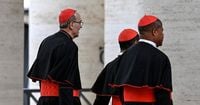
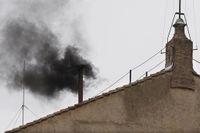
![Konklawe 2025 już jutro. Będą 4 polscy kardynałowie [PROCEDURA krok po kroku]](https://thumbor.evrimagaci.org/DZaFpkOTiG7QG82Dyd3HeP8hJNE=/200x0/tpg%2Fsources%2F8fc38a24-a8fc-41f7-b2da-942ebcd8600d.jpeg)

